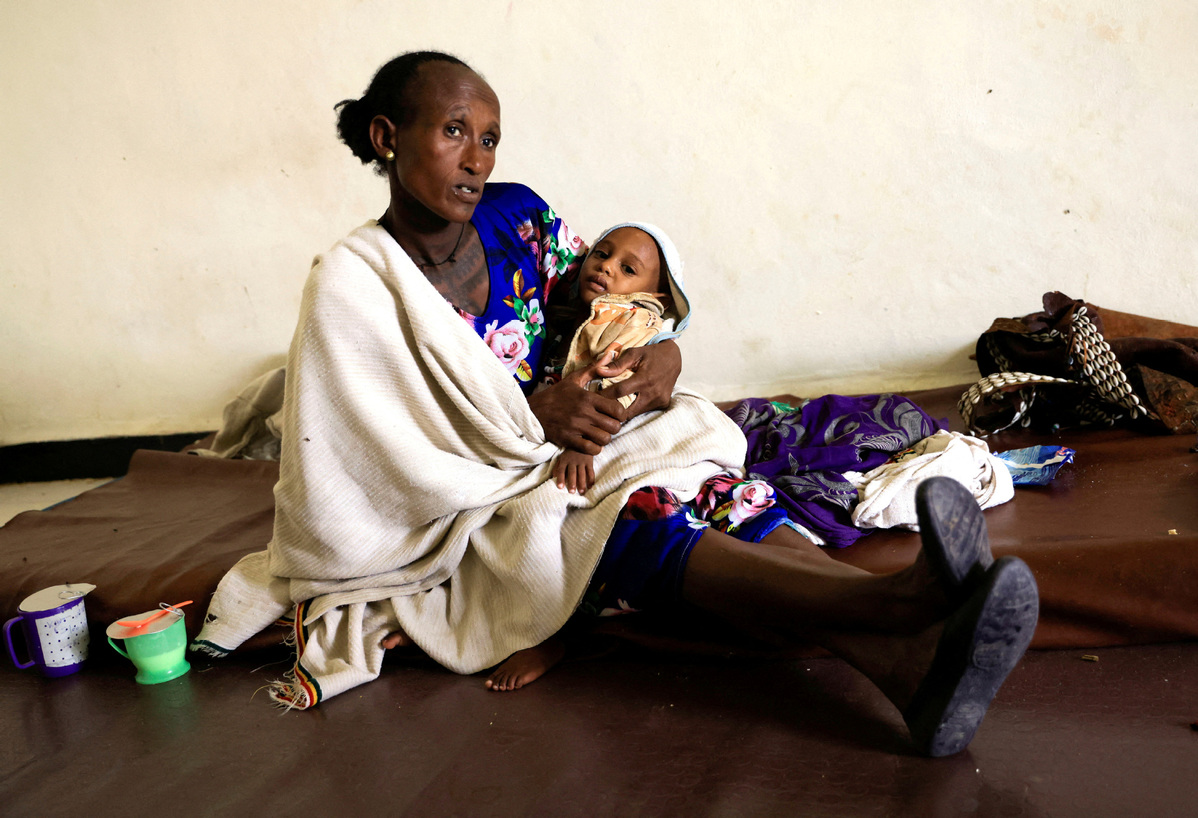High inflation in Africa drives up health costs
By EDITH MUTETHYA in Nairobi, Kenya | China Daily | Updated: 2023-11-01 09:37

Weakening of local currencies leads to rising medical expenditure, experts say
The depreciation of local currencies coupled with the increasing rate of inflation has raised the cost of healthcare in Africa, negatively impacting both the patients and the sector players.
According to a report titled "Regional Economic Outlook for Sub-Saharan Africa", published by the International Monetary Fund in mid-October, inflation at the end of the year is projected to remain in double digits in 14 countries, including some of the region's larger economies, such as Ethiopia and Nigeria.
Most of the African countries' currencies have depreciated against the US dollar, further increasing inflation in the region that is reliant on imports. Healthcare is one of the most affected sectors.
Anthony Mwangi, cluster head of eastern and southern Africa at Novartis Kenya, a pharmaceutical product manufacturer, agent and distributor in Nairobi, said prices of medicines have gone up by 10-20 percent, driven primarily by the depreciation of local currencies against major international currencies.
This has negatively impacted pharmaceutical players who import medicine which, in turn, has affected a number of people who would ultimately get quality and affordable medicine.
"The supply chain process has also been impacted," he said. "The cost of flight, packaging materials and production … everything has gone up significantly since the COVID-19 pandemic. All these factors have impacted the cost of healthcare."
Cecilia Kagwiria, sales and marketing manager at Travotech Agencies, a Kenya-based company that supplies medical equipment, machines, reagents and laboratory consumables, said the currency depreciation has hit her company hard. "Operating a business has become very difficult; importing products is challenging and customers are taking a long time to pay with some even shunning buying the products," she said.
Kagwiria said prices of products have doubled and sales have gone down significantly, adding that some of their customers haven't paid them since 2020.
"Most of the private hospitals who owe us a lot of money are closing down. We also had to close two of our five offices due to the high cost of operation," she said.
"People are sick but (remain) at home because they can't afford to go to hospitals. We are just optimistic that the situation will improve soon."
Janet Auma, who runs a pharmacy in Kenya's capital Nairobi, said many people currently prefer over-the-counter medication as opposed to going to hospital where they will be charged more.
"Most of the patients say going to hospitals is currently very expensive because they will have to pay for the consultation, laboratory tests and then drugs," she said, adding they would rather go to a pharmacy where they will only pay for the drugs.
Auma, however, said it's dangerous when people opt for over-the-counter medication, especially antibiotics because they could develop drug allergy or resistance.
Soaring prices
She said due to the depreciation of the local currency, the cost of drugs has doubled over the last four years, with many patients preferring generic drugs. "Some drugs like supplements, I only buy on order because the cost is so high and if I buy them, they end up becoming dead stock."
James Sakwa, the secretary-general of the Association of Kenya Medical Lab Assessors, said the economic downturn has affected their operations because they use imported kits.
"The fact that the Kenyan shilling is depreciating every day affects the cost of importation of all our reagents because the equipment, the apparatus and the consumables are imported. This affects even the cost of tests, which is passed down to the consumers," he said.
To address the challenge, Sakwa said they plan to start manufacturing some of the chemicals locally.
Hezron Onyango, the head of the radiology department at Nairobi Enterprises, one of the major distributors of medical equipment and medical consumables in the eastern and central African region, said the company is feeling the heat of currency depreciation.
He said the cost of importing medical equipment has gone up by 20 percent, leading to an increase in the cost of healthcare in Africa.
Sushil Dumbe, the technical sales support manager at Nairobi Enterprises, said they are working on increasing local manufacturing and reducing imports to stay afloat.
























